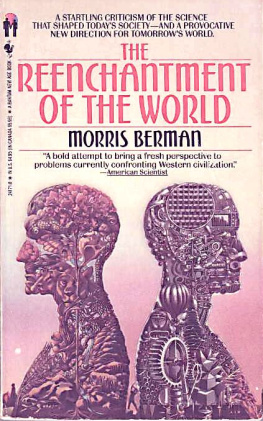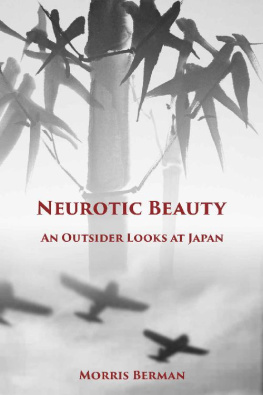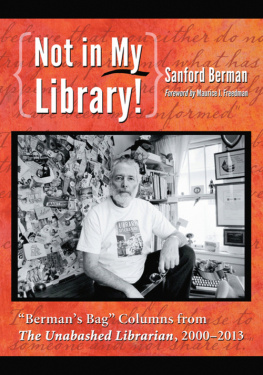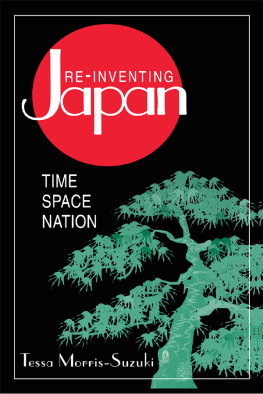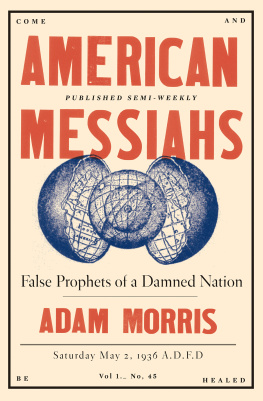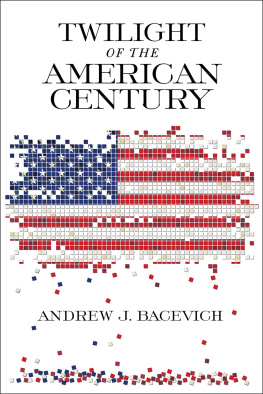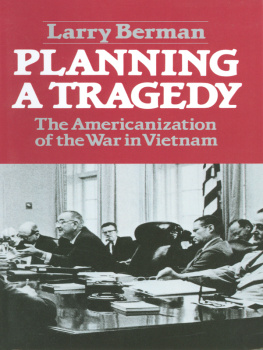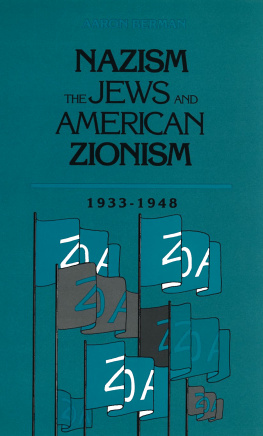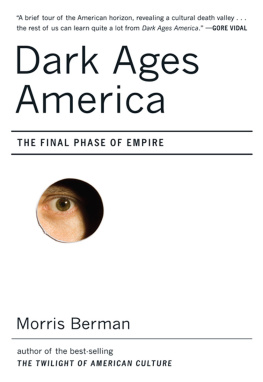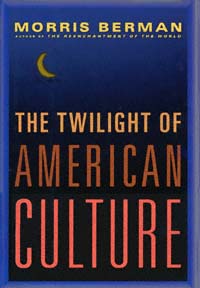We offer to read an annotation, description, summary or preface (depends on what the author of the book "The Twilight of American Culture" wrote himself). If you haven't found the necessary information about the book — write in the comments, we will try to find it.
Amazon.com Review *If you have finally had it with CNN and Hollywood and John Grisham and New Age spirituality, then pull up a chair, unplug your phone (beeper, TV, fax machine, computer, etc.), and give me a few hours of your time. I promise to do my best not to entertain you.* A slightly forbidding introduction to a book, but indicative of its authors disgust at the homogenized McWorld in which we live, and an enticing challenge to read on. As the title *The Twilight of American Culture* suggests, Morris Bermans outlook is somewhat bleak. Analogizing the contemporary United States to the late Roman Empire, Berman sees a nation fat on useless consumption, saturated with corporate ideology, and politically, psychically, and culturally dulled. But he believes that this behemoth--what Thomas Frank called the multinational entertainment oligopoly--must buckle under its own weight. His hope for a brighter tomorrow lies in a modern monastic movement, in which keepers of the enlightenment flame resist the constant barrage of spin and hype. Ironically, despite his disdain for the fashionable patois of postmodernism, he approvingly quotes poststructuralist theorist Jean-Franois Lyotards maxim elitism for everybody in describing this cadre of idiosyncratic, literate devotees, these new monks. Berman is plainspoken and occasionally caustic. *The Twilight of American Culture* is an informed and thought-provoking book, a wake-up call to a nation whose powerful minority has become increasingly self-satisfied as their stock options ripen, while an underclass that vastly outnumbers the e-generation withers on the vine and cannot locate itself on any map. It is a quick and savage read that aims to get your eyes off this computer, your nose out of that self-help book, and send you back to thought and action. *--J.R.* From Publishers Weekly American culture is in crisis, argues Berman, pointing out that millions of high school graduates can barely read or write; common words are misspelled on public signs; most Americans grow old in isolation, zoning out in front of TV screens; and 40% of American adults [do] not know that Germany was our enemy in World War II--never mind that most students dont even want to learn Greek or Latin. Bermans lament that like ancient Rome [American culture] is drifting into an increasingly dysfunctional situation at first makes his book seem like a neoconservative treatise along the lines of the late Allan Blooms The Closing of the American Mind. But Berman, who teaches in the liberal arts masters program at Johns Hopkins University, doesnt locate the cause of this malaise in multiculturalism or postmodernism, as Bloom did (although he is no fan of either one), but rather in the increasing dominance of corporate culture and the global economy, which he claims creates a homogenous business and consumer culture that disdains art, beauty, literature, critical thinking and the principles of the Enlightenment. Bermans provocative remedy is to urge individuals who are appalled by this McWorld to become sacred/secular humanist monks who renounce commercial slogans and the fashionable patois of postmodernism and pursue Enlightenment values. While Bermans eclectic approach often makes for engaging reading, his quirky and almost completely theoretical solutions are unlikely to galvanize many readers. Agent, Candice Fuhrman. (June) Copyright 2000 Reed Business Information, Inc.


